November 16, 2023 · 12 min read
What Is Due Diligence? The Ultimate Board of Directors Checklist

Shaimaa Badawi
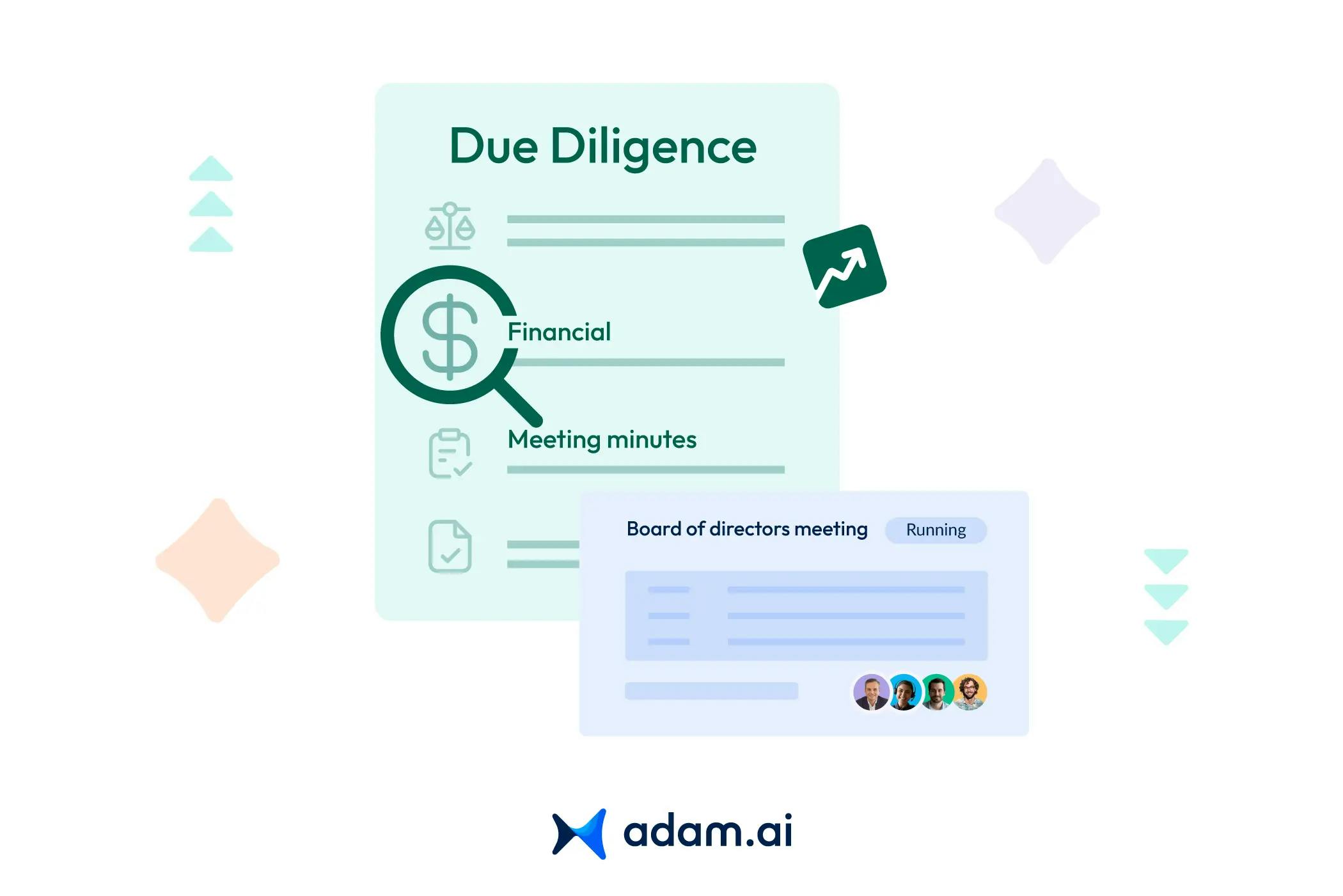
The concept of due diligence is rooted in a rich history of corporate governance and ethical principles of a company’s board of directors. Over the years, it has evolved into a multifaceted process encompassing various aspects of board oversight.
In this article, we answer the often-confusing question “what is due diligence” by exploring its significance, core components, and practical application for board members.
From understanding your role as a director to scrutinizing financial aspects, managing risks, and evaluating compliance, we outline the essential elements that define due diligence for board members.
What is due diligence?
Due diligence, in the context of board appointments, is the process of thoroughly evaluating a company before accepting a board director’s role. Unlike executive roles, independent directors carry legal liabilities, making it crucial to carefully examine a company's suitability.
The due diligence process typically involves two levels of assessment. The initial meeting is an introductory interview with the aim of shortlisting candidates, aligning with the needs of the Nominations and Remuneration Committee (NRC).
The NRC includes a select group of board members whose aim is to assess the diversity, expertise, and knowledge of the board and contribute insights for corporate governance.
The final meeting requires a more comprehensive evaluation of the company, board, committees, culture, and business aspects. This thorough research is what will tip the scale toward accepting or rejecting your board appointment.
But what does due diligence entail in a more general context? It's essentially a means to ensure a company's strength and effectiveness, akin to the care exercised by a reasonable person to avoid harm. In the corporate world, it's a collective effort involving both employees, especially management, and the board of directors.
Examples of due diligence include acquisitions, board appointments, and company assessments.
In essence, due diligence is a responsible approach that entails careful consideration, analysis, and a commitment to the organization's well-being. It's a fundamental practice that every aspiring director should embrace.
What is the purpose of due diligence?
The primary purpose of due diligence is to enable board members to make well-informed and prudent decisions in the best interests of the company and its stakeholders. This process typically involves a thorough examination of various aspects of the opportunity or decision, such as financial, legal, operational, and strategic considerations.
What is a due diligence checklist for the board?
Before joining a board of directors, you need to assess not only what your role will entail, but also whether you're qualified to join that specific board.
Being a board member with fiduciary responsibilities is a significant commitment. Unfortunately, many board directors conduct inadequate due diligence before accepting such roles, which can have lasting consequences.
A comprehensive due diligence checklist should be divided into two parts. First, let's explore the process of due diligence before joining a board of directors.
1. Evaluate the board recruitment process
- Exercise due diligence during the recruitment process.
- Seek transparency and consistency in information shared by the board or chairperson.
- Ask about past director departures, decision-making processes, and disagreements among board members.
- Be cautious if approached for a board role unexpectedly or if qualifications seem mismatched.
2. Conduct your own investigation
- Request access to previous board documents and observe a board meeting before joining.
- Meet all board members individually and note down any concerns about the board.
- Trust your instincts and cross-check information during the recruitment process.
3. Perform a financial status assessment
- Investigate the financial health and risk management procedures of the company.
- Request and review financial documents, including reports, forecasts, and tax records.
- Seek clarification when aspects of financial reporting are unclear.
4. Assess legal and insurance status
- Examine legal matters and judgments against directors or the company.
- Review insurance certificates and study the Directors & Officers Insurance policy.
- Understand the extent of coverage, exclusions, and circumstances where coverage may not apply.
5. Examine intellectual property and data management
- Investigate the management and protection of intellectual property and data.
- Assess the status of patents and check legal reports of patent information security.
- Ensure valuable IP is secure and accessible only to authorized personnel.
- Check domain registrations for potential IP issues.
Now, let's outline the main priorities of a board member after accepting their role.
1. Understand your role thoroughly
- Embrace the responsibility to fully understand your role, expectations, and fiduciary duties.
- Continuously seek opportunities for training and self-improvement.
- Conduct an annual self-assessment to identify areas for board performance enhancement.
- Acknowledge collective responsibility for board decisions, even if you initially disagree.
- Speak for the board only when explicitly authorized and align with the board's official positions in public statements.
- Actively serve on board committees and contribute to their objectives and overall board effectiveness.
- Familiarize yourself with the company's mission, vision, values, and corporate culture.
2. Actively participate in strategic planning
- Ensure that all actions and decisions align with the company’s core principles and incorporate them into strategic planning efforts.
- Engage actively in strategic planning processes, including SWOT analysis.
- Challenge assumptions, ask probing questions, and contribute valuable insights.
- Keep both short-term and long-term company plans in focus.
3. Monitor the company’s financial aspects
- Thoroughly oversee financial operations and reporting.
- Review financial reports, analyze trends, and seek clarification when necessary.
- Ensure the company maintains sufficient cash flow and financial resources.
- Maintain accurate accounting procedures and implement a fraud prevention system.
- Ensure regulatory and legal compliance, including timely submission of required forms.
4. Conduct risk management operations
- Oversee the company's risk management strategies and protocols.
- Educate yourself about potential risks, including cybersecurity, and stay informed.
- Take responsibility for understanding and addressing risks, even if there’s an appointed board expert in risk management.
5. Maintain corporate governance principles
- Ensure the company adheres to good governance practices and upholds the interests of shareholders, stakeholders, employees, customers, suppliers, etc.
- Monitor internal controls, implement robust risk management protocols, and measure employee performance.
- Collaborate on realistic and solid strategic plans that drive the company's objectives.
By thoroughly following this comprehensive checklist, board directors can minimize risks, ensure informed decision-making, and contribute effectively to the organizations they serve. Always remember that thorough due diligence is crucial to protect the interests of shareholders, stakeholders, and the company as a whole.
Elevate your board's strategy—download the free guide "The Board Governance Frameworks: Crafting Superior Strategies for Board Directors" now!
What are the types of due diligence?
Due diligence is a comprehensive assessment encompassing various facets of the company, spanning as many as 20 distinct angles of analysis. Let's delve into these fundamental types of due diligence.
1. Administrative due diligence
This type revolves around administrative aspects such as facilities, occupancy rates, and operational costs. It offers insight into the operational expenses the buyer may incur after an acquisition and involves the assessment of business processes, supply chains, technology infrastructure, and the overall efficiency of operations.
2. Financial due diligence
This involves analyzing the financial health and performance of the company or investment in question. It delves into customer accounts, cost analysis, and profit margins and includes reviewing financial statements, assessing revenue, profitability, cash flow, and identifying potential risks and liabilities.
3. Compliance and regulatory due diligence
This ensures that the opportunity in discussion complies with all relevant laws, regulations, and industry standards to mitigate legal and reputational risks. This due diligence also involves environmental audits, permits, correspondence with regulatory agencies, disposal methods, and liability assessments.
4. Environmental, social, and governance (ESG) factors
Boards often consider ESG factors, including sustainability, ethical practices, and social responsibility, as part of their due diligence process.
4. Legal due diligence
This involves scrutinizing legal documents, board meeting minutes, contracts, agreements, intellectual property rights, regulatory compliance, litigation history, and any legal matters involving the company.
5. Strategic due diligence
Boards need to assess how an opportunity aligns with the company's strategic goals and long-term vision. This includes evaluating market dynamics, competition, growth potential, and synergy with existing operations, considering factors like technology, key personnel, and merger logistics.
6. Market and competitive analysis
Understanding the market conditions, customer behavior, and competitive landscape is crucial for making informed decisions about entering new markets or expanding existing operations.
7. Management and leadership evaluation
Assessing the qualifications, experience, and integrity of the management team and leadership involved in the opportunity is vital for predicting the likelihood of success.
8. Asset due diligence
Asset due diligence involves documenting fixed assets, lease agreements, equipment history, real estate deeds, and permits.
9. Human resources due diligence
HR due diligence is a meticulous examination of the workforce, encompassing employee analysis, contract reviews, HR policies, labor disputes, and benefits.
10. Taxes due diligence
Focusing on tax liability, this diligence examines tax returns, audits, NOL or tax credit carryforwards, and any pending tax-related issues.
11. Intellectual property due diligence
This involves evaluating the company's intangible assets, such as patents, copyrights, trademarks, and intellectual property disputes.
12. Customer due diligence
Customer due diligence examines the customer base, credit policies, customer satisfaction, and lost major customers in recent years.
These comprehensive angles of due diligence provide a holistic view of the company, enabling the board of directors to make informed decisions. Beyond these primary types, due diligence may extend to IT networks, stocks and bonds, research and development, sales and marketing, and more.
What's the role of meeting minutes in due diligence?
Meeting minutes are crucial for due diligence conducted by the board, offering several key benefits and playing a vital role in the governance of a company. Here's why they are indispensable.
1. Legal compliance
Keeping meticulous meeting minutes is a legal requirement, where companies must maintain minutes of all proceedings at their directors' meetings, including informal gatherings of the board. These minutes should comprehensively record resolutions, decisions, and, when applicable, opposing views. This legal compliance ensures that meetings are duly held and that appointments and decisions are valid.
2. Evidence and records
Well-maintained minutes serve as crucial evidence of meeting proceedings. Minutes that adhere to legal requirements and bear the chairperson's signature are considered official records of the meeting. They confirm the meeting's legitimacy, the proper conduct of proceedings, and the validity of all appointments made during the meeting.
3. Documenting compliance
Meeting minutes play a pivotal role in documenting compliance with legal requirements and directorial duties, such as declaring interests in proposed transactions. While the obligation to declare interests has evolved, the meeting remains a suitable platform for such declarations. Discussing interests and documenting them in the minutes provides tangible evidence of proper consideration and compliance with regulatory obligations.
4. Meeting agenda
Although the meeting minutes' agenda varies, certain elements should consistently be covered, including meeting details, attendees, quorum determination, declaration of interests, matters discussed, supporting documents, and decisions made. This structured approach ensures that key aspects of the meeting are always addressed.
5. Information repository
Meeting minutes are invaluable for informing directors who couldn't attend the meeting or new directors seeking insights into past decisions. They serve as a historical record of how matters were addressed previously. Moreover, they can be accessed not only by directors but also by potential purchasers, investors, third parties like banks, and even courts when necessary.
6. Due diligence
In the context of due diligence, potential purchasers, investors, and strategic partners may scrutinize meeting minutes to assess how the company has historically conducted its affairs. These documents provide critical insights into the company's decision-making processes, transparency, and compliance with legal obligations.
7. Auditor's tool
Auditors have a legal right to investigate meeting minutes as part of their review process. They use these minutes to ensure consistency between the company's accounts and records, verifying that financial transactions align with the decisions documented in the minutes.
8. Financial difficulty
When companies face financial challenges, having well-documented meeting minutes becomes even more crucial. Directors may need to justify their actions to insolvency practitioners, making comprehensive minutes an essential tool for demonstrating transparency and adherence to governance protocols.
9. Legal proceedings
While shareholders typically do not have a general right to access board minutes, legal proceedings against the company may necessitate the disclosure of relevant minutes. In such cases, minutes become vital in presenting an accurate account of what transpired during board meetings.
Meeting minutes serve as a cornerstone of good governance, legal compliance, and transparency. They are a vital resource for board members, stakeholders, and external parties conducting due diligence, ensuring that a company's affairs are conducted diligently and in accordance with legal requirements.
Efficiently managing meeting minutes is a crucial aspect of effective due diligence and corporate governance. To streamline this process and ensure accuracy, board directors need to consider leveraging modern technology.
adam.ai is an all-in-one meeting management platform, an innovative solution that will not only automatically generate board meeting minutes, but also facilitate scheduling with booking pages, enhance collaboration using a smart note-taking system, generate meeting transcripts and summaries, and much more.
With its user-friendly interface and advanced features, adam.ai is the ideal tool to complement your due diligence efforts and elevate your corporate governance practices.
Here's what you can do with adam.ai:
1. Sync all your calendars on one platform and create unlimited booking pages to show your availability and accommodate the schedules of busy board members.
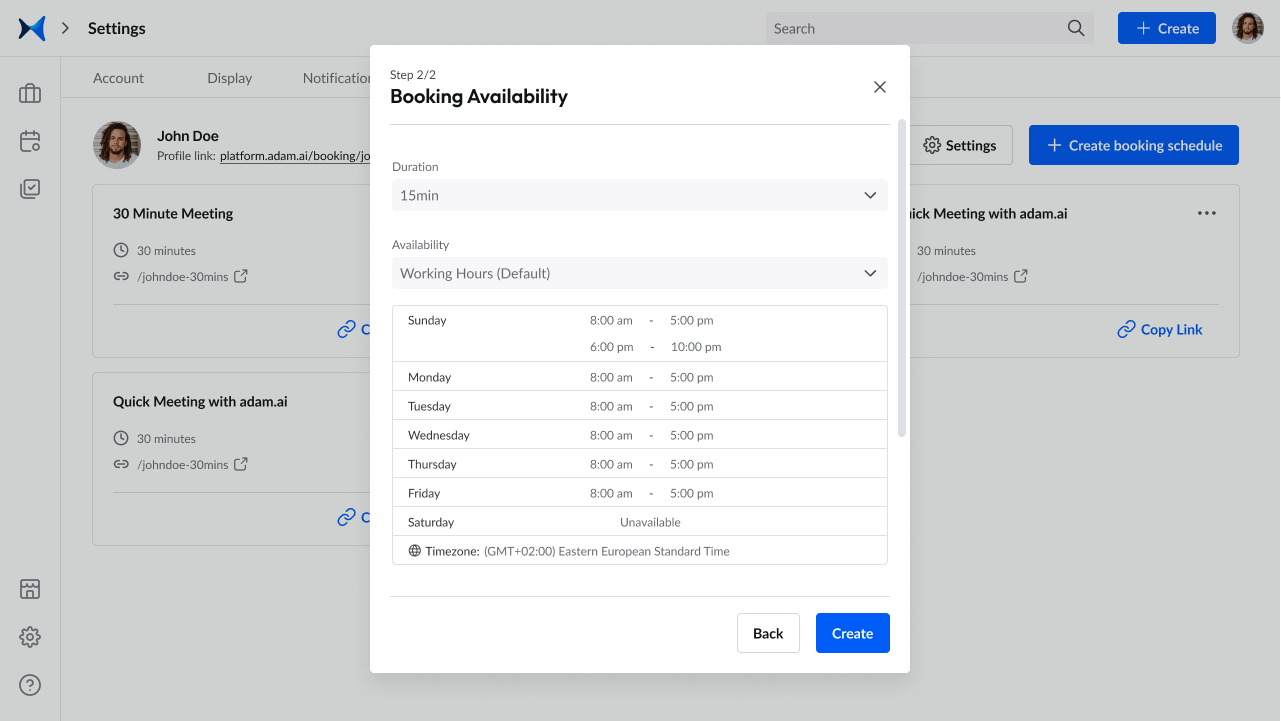
Screenshot from adam.ai: Booking pages.
2. Record agenda items, actions, polls, decisions, and notes using a smart note-taking system displayed side by side with the built-in video-conferencing feature for enhanced collaboration and productivity, with the ability to integrate with popular video-conferencing tools you're familiar with.

Screenshot from adam.ai: Video call displayed side by side with the meeting content.
3. Choose a customizable meeting agenda template from our gallery to kickstart preparation for your board meetings to ensure organized and timely meetings.
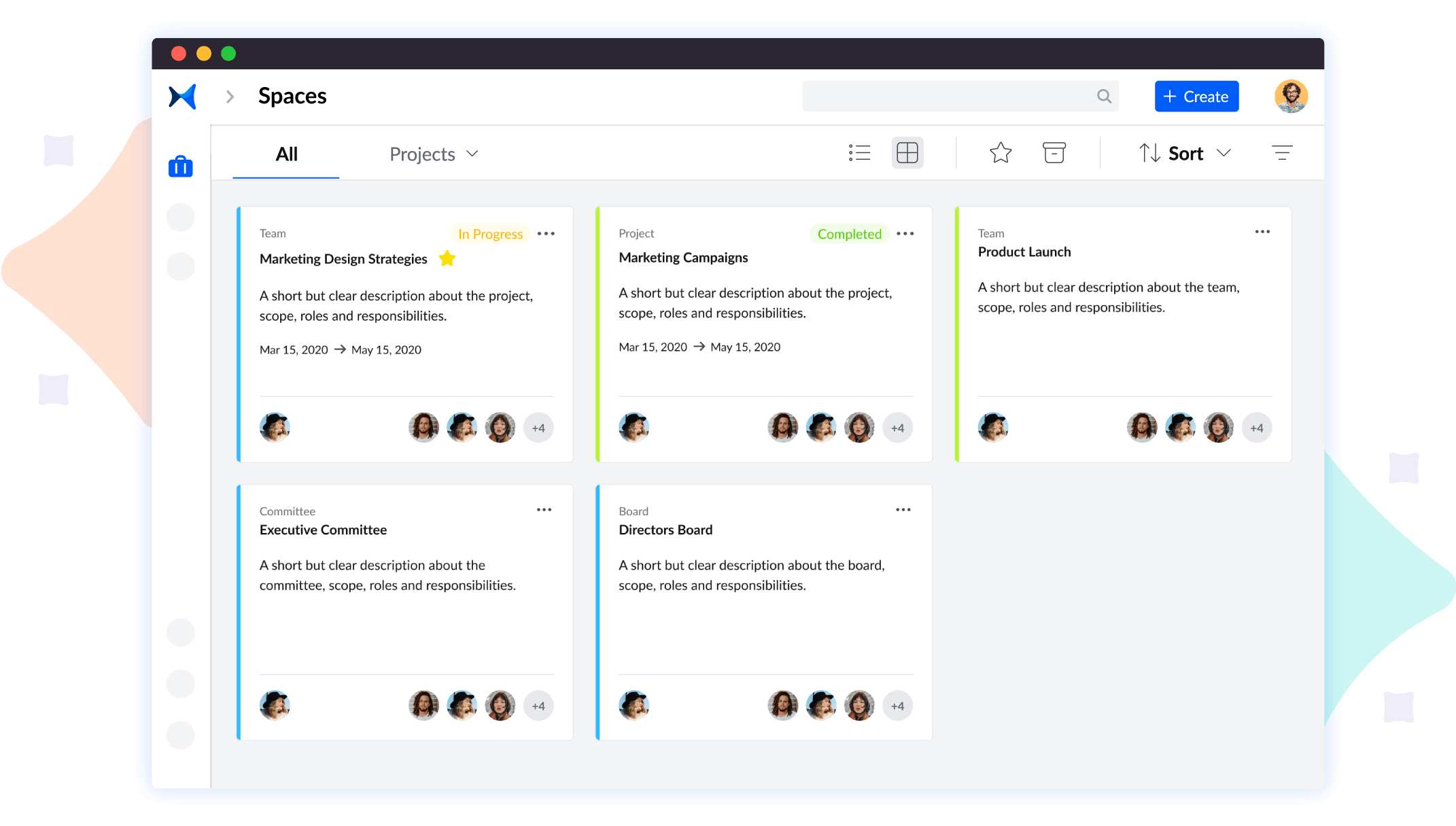
Screenshot from adam.ai: Meeting templates.
4. Track your actions to ensure task ownership and accountability and improve decision-making with a powerful follow-up system with the ability to search for actions across all meetings.
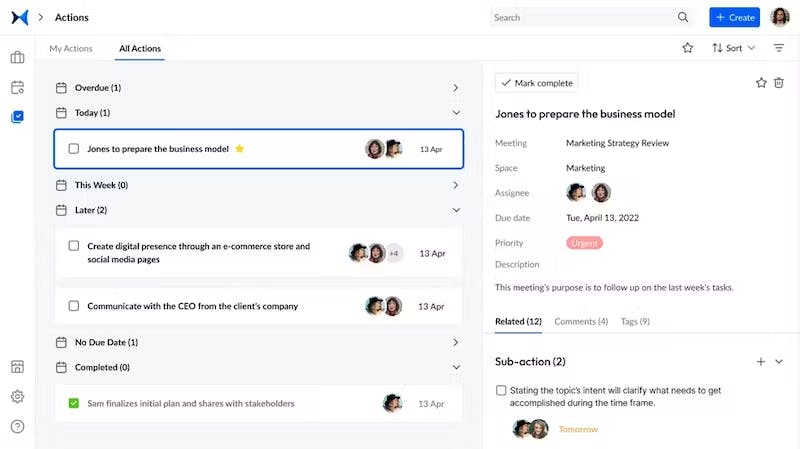
Screenshot from adam.ai: Manage actions.
5. Categorize meetings into spaces, including project, team, board, and committee, and have all their content under a specific umbrella for easy access.
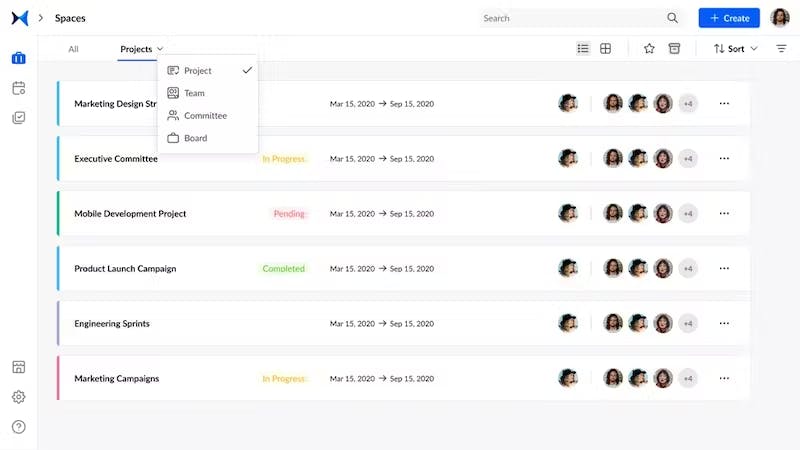
Screenshot from adam.ai: Meeting spaces.
6. Generate and share meeting minutes for due diligence in board meetings and to keep a record for your reference.

Screenshot from adam.ai: Meeting minutes.
7. Ask Adam the AI Assistant to generate meeting transcripts, enhance your meeting content, suggest agendas, and highlight action items and key insights.
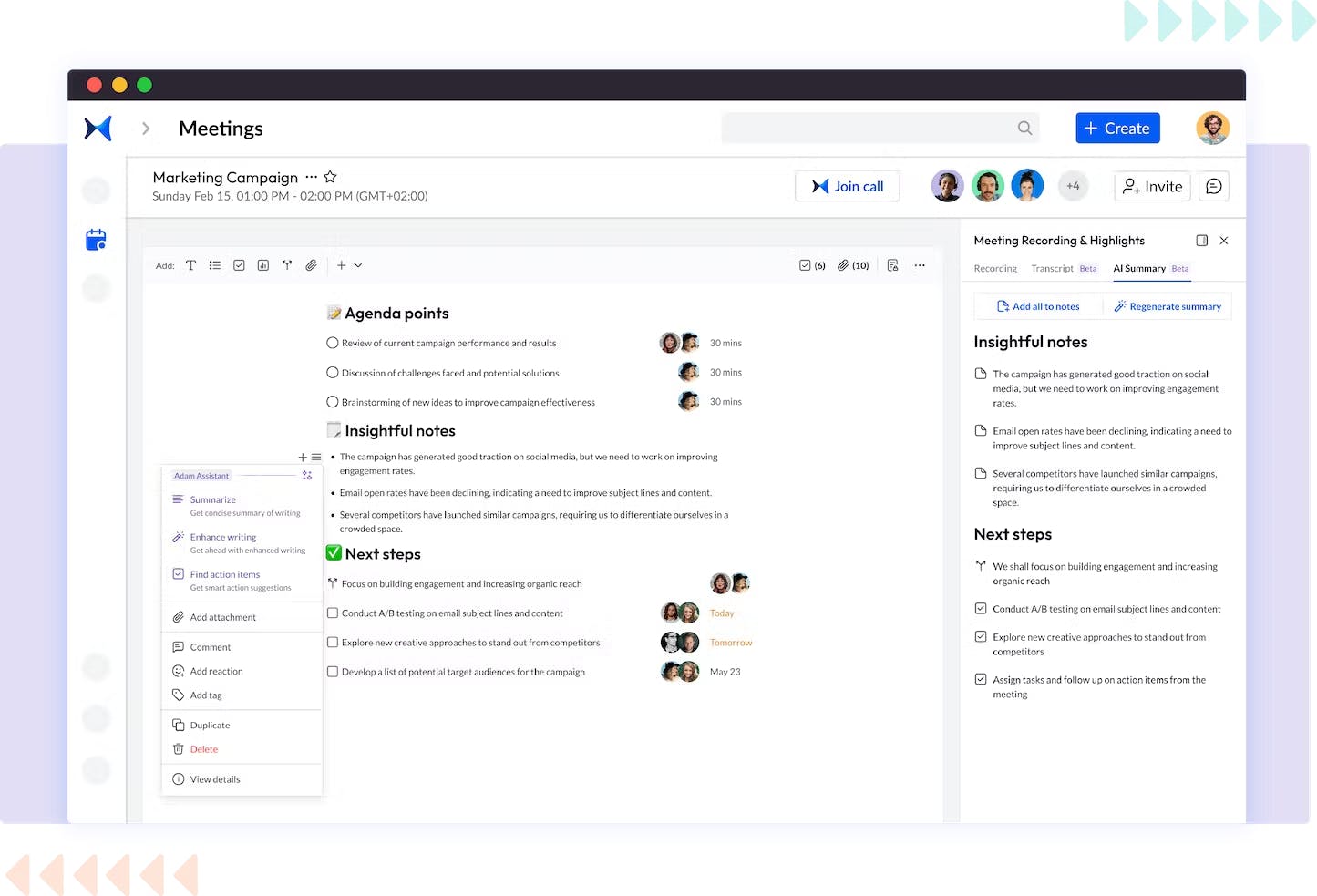
Screenshot from adam.ai: Adam the Assistant.
Get started right now to experience the true meaning of all-in-one meeting management.
Transform how you conduct critical meetings—From meticulous preparation to effective execution and insightful follow-up, adam.ai integrates comprehensive analytics, full customization, and intuitive interfaces with powerful meeting management tools.
Easy onboarding. Enterprise-grade security. 24/7 dedicated support.
The bottom line
As we conclude our exploration of what is due diligence for board members, it becomes evident that this process is not merely a procedural formality but a fundamental practice that underpins corporate governance.
Board members, entrusted with safeguarding the interests of shareholders and steering the company toward success, must embrace due diligence as an integral aspect of their roles.
As the corporate landscape continues to evolve, board members must adapt and uphold these principles to ensure the sustained growth and prosperity of the organizations they serve.
We recommend using an all-in-one meeting management platform, like adam.ai, to facilitate the due diligence process and meeting minutes and manage your entire board meeting lifecycle before, during, and after meetings.
And while there may be multiple meeting management solutions available, here is why adam.ai is the all-in-one meeting management platform you can trust:
- adam.ai is one of Atlassian Ventures' portfolio companies.
- In the meeting management software category on G2, adam.ai has been ranked a leader and a high performer for successive quarters in the past years.
- adam.ai has been included in the Forrester Report in the AI-enabled meeting technology landscape.
- adam.ai is trusted and used by powerful teams and organizations worldwide for all types of critical meetings, like board, committee, project management, and business development meetings.
- And most importantly, adam.ai integrates with your existing workflow, is SOC2 compliant, provides dedicated support and success, and has a free trial option.
Subscribe to adam.ai blog
Stay ahead with the latest insights—get our newest blog posts, tips, and updates sent straight to your inbox.